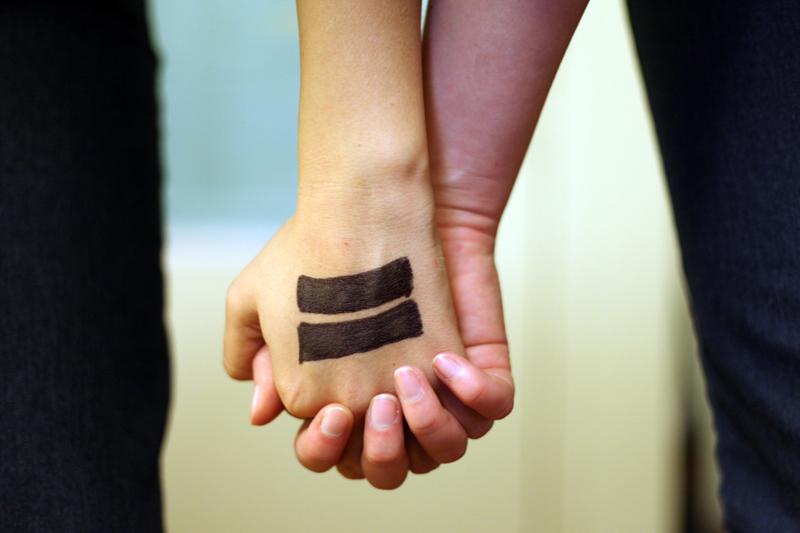
Two days before the U.S. Supreme Court heard the first of two same-sex marriage cases, Sen. Claire McCaskill, D-Mo., quietly endorsed same-sex marriage in a post on her Tumblr blog.
“I have come to the conclusion that our government should not limit the right to marry based on who you love,” McCaskill wrote in a post on March 24.
Several other high-profile legislators announced their support of same-sex marriage last month. Sen. Rob Portman, R-Ohio, became the first Republican senator to publicly endorse same-sex marriage after learning his son is gay. Hillary Clinton — whose husband, former President Bill Clinton, signed the Defense of Marriage Act, which denies federal benefits to same-sex couples who are legally married — also backed same-sex marriage.
McCaskill said her views on same-sex marriage have evolved over the years.
“My views on this subject have changed over time, but as many of my gay and lesbian friends, colleagues and staff embrace long-term committed relationships, I find myself unable to look them in the eye without honestly confronting this uncomfortable inequality,” McCaskill said.
MU College Republicans Chair A.J. Feather said most group members, especially those who are libertarian leaning, agree with McCaskill’s endorsement.
“I think it’s interesting how these positions are evolving as it becomes a more viable political stance, especially for Democrats,” Feather said. “A lot of our members actually agree with that stance or take sort of a different side on it. A lot of our more libertarian members agree with the Ron Paul stance, which is ‘Why does the government have anything to do with marriage in the first place? It’s a religious institution and that’s how it should stay.’”
American support of same-sex marriage has skyrocketed during the past decade. A recent Washington Post-ABC News poll found that 58 percent of Americans support same-sex marriage. In March 2004, 33 percent of Americans supported same-sex marriage, according to a Gallup poll.
Missourian support of same-sex marriage lags behind national figures. A 2012 poll by Public Policy Polling found that 36 percent of Missourians supported same-sex marriage, although 64 percent supported legal recognition of same-sex couples.
Missouri House Speaker Tim Jones, R-Eureka, said Missourians are clearly against same-sex marriage.
“I personally do not understand how marriage can be defined other than between a man and a woman,” Jones said. “I do believe it should be left to the states though, and Missouri has been very clear on where we are on that issue. We’re opposed to gay marriage.”
In 2004, 71 percent of Missouri voters ratified Amendment 2, which defined marriage as between one man and one woman in the state constitution. McCaskill opposed the amendment.
In the Missouri legislature, more than 55 senators and representatives from both parties have co-sponsored the Missouri Nondiscrimination Act, which would prohibit employers and housing officials from discriminating based on sexual orientation or gender identity.
Jones announced at a press conference that he does not support the bill.
“I’m not in favor of creating more protected classes and encouraging more litigation on our Missouri employers and job creators,” Jones said.
On March 26 and March 27, the Supreme Court weighed two cases involving same-sex marriage. In the first, the justices considered the constitutionality of California’s Proposition 8, a 2008 ballot initiative in which voters amended the state’s constitution to define marriage between one man and one woman, overturning a California Supreme Court ruling that had made same-sex marriage legal. In the second case, the Supreme Court considered the constitutionality of the 1996 Defense of Marriage Act.
Rulings on the cases are expected in June.
Feather said although most members of the College Republicans support equality, he believes same-sex marriage decisions should be left up to the states.
“As far as our club is concerned, most individuals are in support of going ahead and giving equality at the state level, Feather said. “We’re not in support of any federal government intrusion or overreach like a Supreme Court ruling that changes the law in all 50 states or even one state.”
McCaskill said she believes history will favor same-sex marriage.
“Good people disagree with me,” McCaskill said. “On the other hand, my children have a hard time understanding why this is even controversial. I think history will agree with my children.”